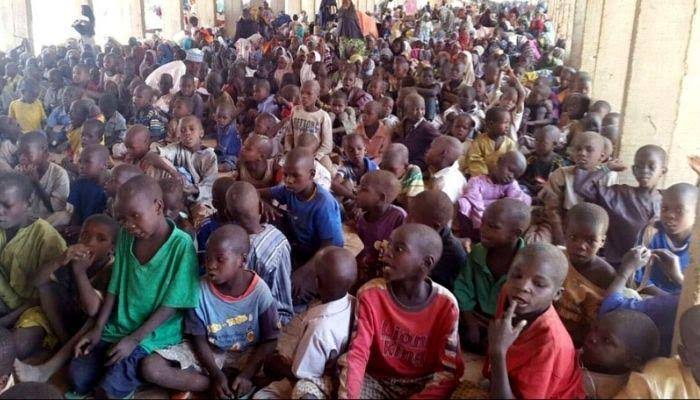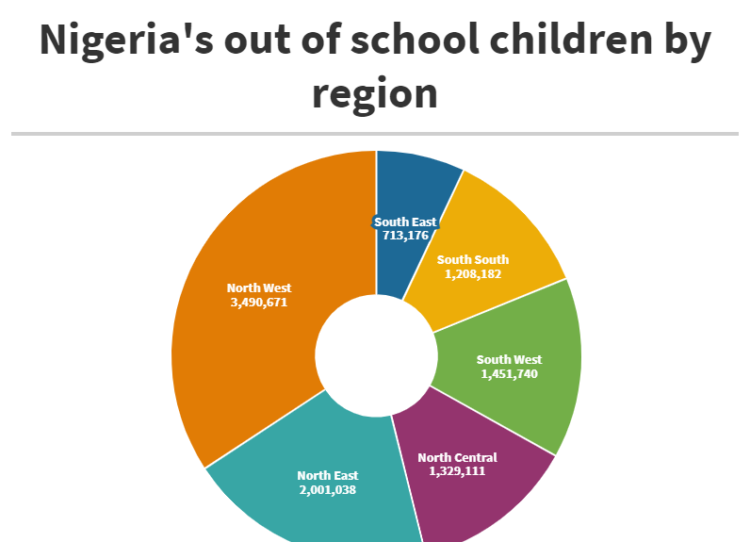Nigeria Battles Basic Education Challenges
Addressing the crisis of out-of-school children in Nigeria requires the government to prioritize education by increasing investment in the sector, ensuring the availability of quality schools, and training qualified teachers.

Nigeria has been tagged as one of the countries with the highest population of out-of-school children globally. In 2022, data from the United Nations Educational, Scientific and Cultural Organization (UNESCO) revealed a staggering figure of 20 million out-of-school children in Nigeria, marking a significant increase from previous estimates.
A recent report by the United Nations revealed that Nigeria's current population of 200 million is projected to double and exceed 401 million by the year 2050. If the current demographic trends persist, it is anticipated to surpass a staggering 728 million by the end of the century.
However, this demographic growth is occurring concurrently with a substantial number of children who are out of school. As of 2020, Nigeria had the highest number of out-of-school children in the world, estimated at over 10 million.
Factors that contribute to the alarming number of out-of-school children in Nigeria include poverty which is a primary driver. With many families unable to afford basic educational expenses such as uniforms and textbooks, many children have taken to the streets to hawk different variables while others roam the streets aimlessly.
The prevalence of child labor also keeps many children out of school, as they are forced into work to help support their families. Insufficient infrastructure of classrooms and security challenges, particularly in conflict-affected regions, result in the closure of schools, leaving children with no access to education.
These issues have created a complex web of barriers to education for Nigerian children. The crisis of out-of-school children has far-reaching consequences for Nigeria's future. Without access to education, these children are denied the opportunity to reach their full potential, limiting their future prospects.
This impedes the nation's development, as a large portion of its youth population remains unskilled and uneducated, unable to contribute effectively to the economy.

The lack of education exacerbates the cycle of poverty, as these children are more likely to grow into adults with limited economic opportunities. The long-term impact on society is profound, as uneducated individuals are less likely to make informed decisions about health, family planning, and civic engagement.
Addressing the crisis of out-of-school children in Nigeria requires the government to prioritize education by increasing investment in the sector, ensuring the availability of quality schools, and training qualified teachers. Child labor laws and enforcement mechanisms are necessary to be adhered to strictly to prevent children from being pushed into work prematurely.
Experts React…
Osazuwa Nelson, chief operating officer at Church on the Street, a non-profit organization with a mission to support children from poor families with education, emphasized the importance of education and skills acquisition.
“The moment they leave their homes for school, their minds are refreshed and focused on the kind of life they want to build for themselves. Education provides them with the foundation to believe in their potential and affirmations that they can achieve their dreams," he said.
He highlighted the ‘hustling spirit’ he observed during community initiatives, where children engage in menial jobs not suitable for their age to achieve their goals.
“The best solution in situations like this is for the government or initiatives to reach out to these children and organize projects that would change their minds, which have already been altered due to circumstances beyond their control,” he emphasized.
Recalling his visit to a Warri community, he shared, "we shared our personal life stories with them, empowering them with the belief that they too could have a brighter future. We imparted practical skills, such as sewing alongside recycling and within two days, they grabbed the knowledge. This shows that these children have untapped potential, but they lack opportunities."





